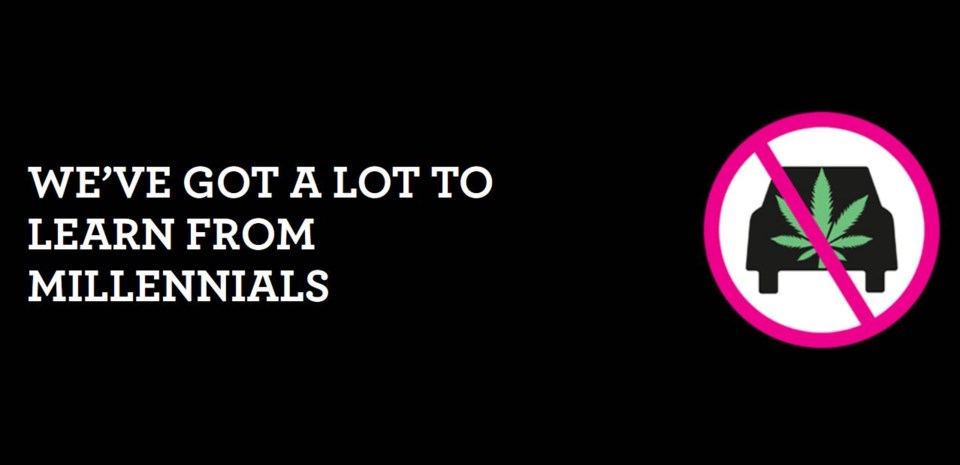The BCAA has launched an impaired driving awareness campaign, after a survey revealed 20 per cent of 18-34 year old Canadian drivers think they drive the same or even better when high.
With legalized cannabis coming Oct. 17, BCAA fears such statistics are “troublesome.”
However, it wants to focus on the other side of the survey, with the majority of millennials thinking and acting responsibly around impaired driving.
BCAA believes millennials have the potential to lead all generations in high-driving prevention.
“Millennials have a special place in history,” said Shawn Pettipas, BCAA’s director of community engagement.
“This generation grew up surrounded by impaired driving messages on TV, radio and in school.
“They’re the first generation who got behind the wheel appreciating the risks, and who made impaired driving socially unacceptable.
“What we want is for people to understand that high driving is also impaired driving, and for all millennials to add that into their set of values.”
The BCAA survey, conducted by Innovative Research with 18-34 year old B.C. drivers, also revealed:
91 per cent make plans for a safe ride home before a night out;
88 per cent would never consider driving impaired;
78 per cent saying they would “call out” friends considering driving impaired;
72 per cent have been designated drivers over the last three years, with 55 per cent doing it regularly.
And, according to the survey, most millennials have already adopted cannabis into their definition of impaired driving, with 82 per cent of them seeing driving on cannabis as impaired.
Pettipas sees a unique opportunity for millennials to take a leadership role to prevent their peers and other generations from driving high; and to make high driving socially unacceptable, the same way they did with drunk driving.
BCAA is exploring this theme in its new public awareness campaign that uses role reversal to show millennials who understand that high driving is impaired driving help their parents get home safely after getting high.
The campaign is running on TV, online, through social media channels and in movie theatres in the months leading up to legalization.
“We’re entering a new era in road safety and can learn from the past to ensure we’re all safe once cannabis is made legal,” said Shom Sen, BCAA’s president and CEO.
“BCAA wants to keep British Columbians informed about the effects of cannabis on driving and help the province navigate safely through this turning point in Canadian history.”



